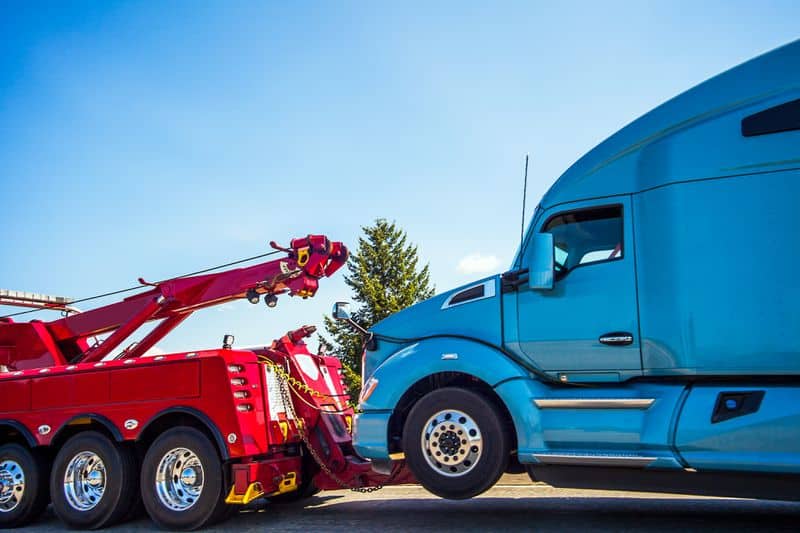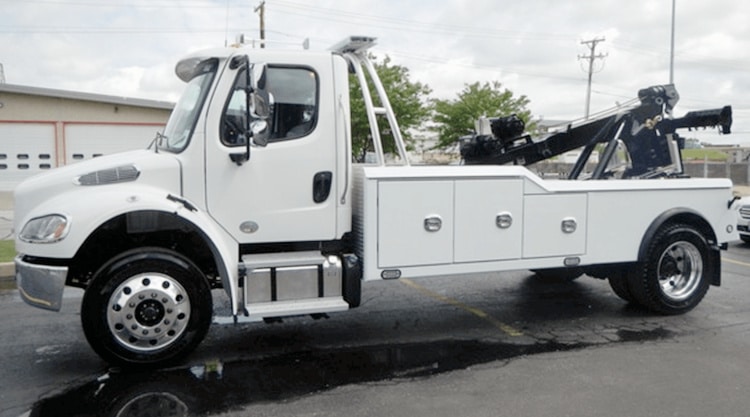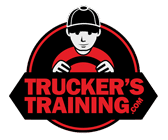One of the most common sites on any major road or interstate is a tow truck. Whether passing by tow truck drivers hard at work or seeing one heading to a call, many drivers miss the importance of these familiar vehicles.
Job security is almost guaranteed as employment opportunities for tow truck drivers exist in every city, and the financial upside can be significant.
Education and Training

There are variances between states regarding precise regulations for becoming tow truck drivers. However, licensing programs and various tests are required by most states. There are a few common requirements, including being over 18, a clean driving record, and being able to pass drug, vision, and physical tests.
Although a commercial driver’s license is required by federal law for tow weights exceeding 26,000 pounds, certain states require a CDL for tow drivers towing any weight. Before obtaining a CDL, a driver must attend in-person training, write an exam, and then pass a road test.
The need for towing certification depends on the state. Every employer also has their own policies. A flexible schedule is often a must, and many employers prefer high school graduates. Some require a criminal background check. It is also not uncommon for potential drivers to be turned down for employment if they are younger than 21 or 25. This ensures that new hires have several years of driving experience.
The skills needed to correctly perform the job are most often learned on-site, under the tutelage of another experienced driver. They demonstrate proper safety procedures, explain company policies, and discuss strategies to employ in different situations. Once practical experience on the job has been gained, The Towing and Recovery Association of America offers certification options. Three levels of certification training can be done online or in-person.
- Level 1 requires a minimum of 90 days’ tow experience, meets their state’s driving requirements and passes a 100-question test.
- Level 2 requires a CDL, level 1 certification, and 1 year as a recovery operator and either a heavy- or medium-duty tow truck driver. The test comes in two parts — an oral portion on how real-life situations would be handled and written basic theoretical knowledge.
- Level 3 requires all of level 2, plus endorsements on the CDL, and 2 years of professional experience. The test has the same 2 segments as for level 2.
How Much Does a Tow Truck Driver Make?
The tow truck driver salary according to Salary.com, as of May 2020, in the U.S. is $53,471. The reported median hourly wage is $26.
There are several factors that influence wages earned:
In general, drivers of conventional tow trucks will earn less than one who drives full-float trucks. The highest paying class of drivers are those who drive flatbeds.
Some companies offer benefit programs to their drivers which ups their overall wage. In the other direction, certain companies prefer not to pay a salary, but to pay instead by each tow. Depending on how busy the area is, this could be beneficial or detrimental.
Highest Paying States/Cities for Tow Truck Drivers

Top 5 highest paying states (average annual salary):
- Rhode Island – $42,083
- District of Columbia – $41,997
- Massachusetts – $41,452
- Minnesota – $41,428
- North Dakota – $40,749
Top 5 highest paying cities (average annual salary):
- Livermore, CA – $39,882
- Seattle, WA – $38,707
- Boston, MA – $38,511
- Arlington, VA – $37,763
- Chicago, IL – $36,499
Work for Someone Else or Own Your Own Towing Company?

Being your own boss comes with its own set of challenges. While there are benefits to owning a company, there are also more responsibilities and liabilities. As with any business, there are expenses to be considered before making any decisions. Monthly expenses will likely include rent, truck payment(s), gas, insurances, marketing, and repair bills. Additional expenses involve uniforms, phones, staff, and office supplies. The biggest benefits to owning are making all the decisions, keeping the profit margin, and taking the business as far as it can go.
As the employee of a company, a tow driver will have certain limits. Unless the driver agrees to work overtime, the week finishes at 40 hours. Bigger decisions are left for bosses to decide, and the job will likely be more enjoyable. The downside is that wage increases may not occur as frequently, on-call and overtime may be required, and there may be no room for advancement. Not everyone can afford to own their own business but working for a great employer who cares about their business is the next best thing.
How Many Hours Do Tow Truck Drivers Work on Average?

Like most occupations, drivers work the usual 40-hour week. Overtime can be expected since tow truck driving is not a 9-5 business, especially when the weather is bad. Drivers are often on call during the winter and getting called out to accident scenes or cars in the ditch are common occurrences.
Holidays and long weekends usually see a rise in calls as well. Once a driver has put in their 40 hours, most are entitled to overtime pay protection under the Fair Labor Standards Act at a rate of 1.5 times their hourly wage.
How to Increase Tow Truck Driver Pay
If a tow truck driver wants to see a bigger paycheck at the end of the week, there are several ways this can be accomplished. Continuing education is a great way to get an employer to see potential and reward it with additional income. The more courses and certifications a driver has, the higher their pay scale will be. New courses are being offered through various organizations on a regular basis so keeping on top of these is a must.
Increasing skill sets also tend to translate into extra money. For example, a tow truck driver who only works with conventional tow trucks may wish to train on a full-float truck. Keeping mechanical skills and vehicle knowledge current can also be a big boost.
Conclusion
No hard figures exist on exactly how many tow drivers are in the United States, but average data suggests that it is several hundred thousand. This much needed and often under-appreciated career draws people who absolutely love what they do. If job security, good pay, and the desire to help others are appealing, becoming a tow truck driver is the profession to look towards.
TruckersTraining.com provide information, tools and resources to potential truck drivers in the U.S. We hope that you can use the content on the site to help you decide if want to drive trucks for a living.
